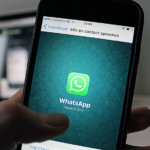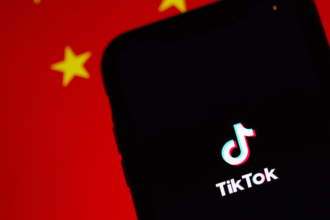Among the most defining and extensively observed changes in international trade and technology is the effect of the US-China trade war on smartphone tariffs. Although discussions of tariffs have long dominated world affairs, the unexpected absence of cell phones from the most recent US tariff list begs important issues regarding strategy, timing, and the direction of world supply chains.
- Why did the US exempt smartphones from tariffs during the trade war with China?
- Can Tim Cook affect the impact of smartphone tariffs in the US-China trade war?
- Which Other Nations Experience Effects on Smartphone Tariffs from the US-China Trade War?
- Is the US-China Trade War Affecting Smartphone Tariffs Motivated by Economic Concerns?
- How will the US-China Trade War affect Smartphone Tariffs going forward?
- Notes of Final Thought
US customs secretly posted a new list of tariff exclusions in an unexpected action over the weekend. Tucked down far on the list was code 8517.13.00, a little figure most people would not know, but it is essential to individuals working in the software sector. The official customs classification for cell phones is this code; the top Chinese export to the US by value is this code.
This surprising exemption implies that, behind the scenes, actual reality is driving a far more flexible approach despite public rhetoric about decoupling from China and supporting American industry.
Why did the US exempt smartphones from tariffs during the trade war with China?
Before this exemption, the White House strongly hinted that the higher taxes were meant to inspire businesses like Apple to move manufacturing from China. Howard Lutnick, the US commerce secretary, implied that the relocation would boost homegrown manufacturing and lessen reliance on Chinese assembly lines.
On the other hand, if the US-China trade war had affected smartphone tariffs without exception, the consequences would have been instantaneous and devastating for consumers and businesses. According to market research company Counterpoint, China produces around 80% of the Apple iPhones meant for the US.
A 125% tariff on these goods would have meant a sharp price rise for American consumers. Depending on the model and configuration, experts project that average iPhone pricing might have climbed from about $1,000 to as high as $2,000.
The US government most certainly sought to avoid a price increase of this kind, especially in an election year. Hence, it would have alienated American customers and generated a lot of critique. This results in a political as well as an economic impact on smartphone tariffs from the US-China trade conflict.
Can Tim Cook affect the impact of smartphone tariffs in the US-China trade war?
Apple CEO Tim Cook’s contribution to these policy moves cannot be understated. Cook keeps close ties with President Trump and Chinese President Xi Jinping, so he has become a powerful player in international commerce.
Cook is one of the few business leaders qualified to provide both sides with a pragmatic view of the effects of trade restrictions, given his background in global logistics and supply chain management. Industry analysts speculate that, depending on Cook’s behind-the-scenes power, the US-China trade war’s effect on smartphone taxes may cause more changes.
Saying Cook’s ability to balance the economic interests of both nations places him as a possible mediator—especially in the technology industry—is not hyperbole. His company’s interests are protected for now, but generally, the trading environment is still unclear.
Which Other Nations Experience Effects on Smartphone Tariffs from the US-China Trade War?
The emphasis on cell phones has somewhat obscured the reality that other nations have also seen their tech-related exports to the United States partially spared from tariffs. This is not haphazard.
Nations including Taiwan, Malaysia, Vietnam, and Thailand all have substantial electronics manufacturing industries, many closely entwined with American corporations’ worldwide supply networks. According to the economic consultant Capital Economics, about 64% of Taiwan’s exports to the United States are now free from new tariffs; Vietnam and Thailand also had roughly 30% of their exports spared.
The seeming trend in these exemptions complicates the discussion of the US-China trade war’s impact on smartphone tariffs. Although the government had previously presented tariffs as a means of balancing trade, the exception seems more like an attempt to shield American companies and consumers from the negative effects of unexpected price increases.
Is the US-China Trade War Affecting Smartphone Tariffs Motivated by Economic Concerns?
One of this development’s most important issues is what inspired the transformation. Many analysts think the financial markets significantly changed how the White House approached tariffs.
Recent volatility in the bond market implied that growing tariffs would scare investors and raise American government borrowing prices. Rising consumer electronics prices, particularly for cell phones, would likely lead to inflation and force the Federal Reserve to consider interest rates. That situation might set off a chain reaction of negative economic consequences, which legislators were ready to prevent.
Given this background, the easing of the US-China trade war’s impact on smartphone tariffs looks to be a deliberate action to reassure financial markets, lower inflation expectations, and maintain consumer confidence.
How will the US-China Trade War affect Smartphone Tariffs going forward?
Although the present exception might temporarily comfort consumers and businesses, the long-term effects of the US-China trade war on smartphone tariffs are yet unknown.
Globally linked supply chains mean that unilateral policies like tariffs seldom have straightforward, linear effects. Many American companies are already considering “China-plus-one” approaches and diversifying their manufacturing bases to help prevent future dangers.
Trade negotiations will probably swing between confrontation and compromise as geopolitical tensions change. This emphasizes the need for companies to be adaptable, continuously monitor the market, and plan scenarios.
The short-term view for consumers points to consistent pricing on highly sought-after goods like cell phones, but any regulatory changes might readily cause volatility once more. Businesses and buyers negotiating this erratic terrain will depend on keeping current on these changes.
Notes of Final Thought
The influence of the US- China trade war on smartphone tariffs emphasizes the problematic balance between national policy goals and world economic integration. Although tariffs were initially seen as fundamental tools for balancing trade, the present situation shows that modern economies are too linked for such straightforward remedies.
Although the exception of cell phones provides some respite for now, the fundamental conflicts remain unmet. Policymakers, companies, and consumers should prepare for more turns in the following months.








